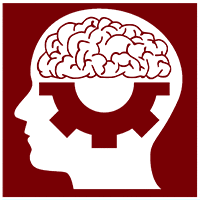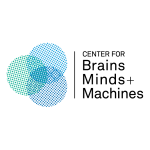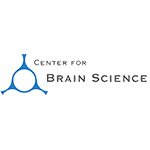LH - Academic Programs
This document highlights core areas within key disciplines, for which undergraduate training at an introductory or intermediate level is valuable for research on intelligence that integrates computational modeling with empirical studies in neuroscience and cognitive science. Also outlines a few existing programs at academic partners of the Center for Brains, Minds, and Machines that embody cross-disciplinary training in different ways.
A highly interdisciplinary undergraduate academic program combines core courses in psychological science, neuroscience, neural computation, computer science, probability and statistics, with advanced electives in many areas of neuroscience, cognitive science, and computational modeling of biological systems. The new B.S. degree in Computation and Cognition, joint between the Departments of Brain and Cognitive Sciences and Electrical Engineering and Computer Science, focuses on computational and engineering approaches to brain science, cognition, and machine intelligence. Graduate training complements interdisciplinary coursework with cutting-edge research to prepare graduates for careers in research, teaching, or industry.
Academic tracks for undergraduates integrate introductory courses in psychological science and neuroscience, an advanced seminar, and a major concentration in areas such as computer science, psychology, or neuroscience/neurobiology. Students in this certificate program conduct thesis research and participate in an interdisciplinary symposium and research workshop. This initiative also supports graduate student activities that promote interdisciplinary research.
Researchers in the Center for Brain Science (CBS) study the structure and function of neural circuits, with the aim of understanding how these circuits govern behavior, how they change during development and aging, and how they underlie neurological and psychiatric disorders. CBS faculty participate in the new undergraduate concentration (major) in Neuroscience and the graduate program in Neuroscience, in which students conduct PhD thesis research in the Harvard Medical School Neurobiology department, in Harvard affiliated hospitals, or in the Faculty of Arts and Sciences.
The Cognitive Science program at JHU provides theoretically oriented research and academic training programs for undergraduates and graduate students that integrate the core approaches of cognitive psychology, linguistics, computer science and artificial intelligence, neuroscience, philosophy, and anthropology, to study the mind and brain.
The PhD program in Developmental and Brain Sciences at UMB focuses on understanding cognition, perception, and behavior during development of neural and hormonal mechanisms. Students follow a cognitive specialization that examines functional changes in perceptual and cognitive abilities or a behavioral specialization investigating neural and hormonal correlates of behavior.
The Neuroscience major at Wellesley combines core training in neuroscience with courses that can be drawn from biology, psychology, chemistry, computer science, math, and physics. Students can concentrate in cellular and molecular neuroscience, cognitive neuroscience, or systems and computational neuroscience. The Cognitive and Linguistic Sciences major embodies the interdisciplinary study of language and mind, with concentrations in linguistics, psychology, philosophy, and computer science.
A research oriented concentration in Behavioral Neuroscience in the psychology major at Hunter College integrates coursework in psychology, biology, and math, and includes an option to pursue Honors Research.









